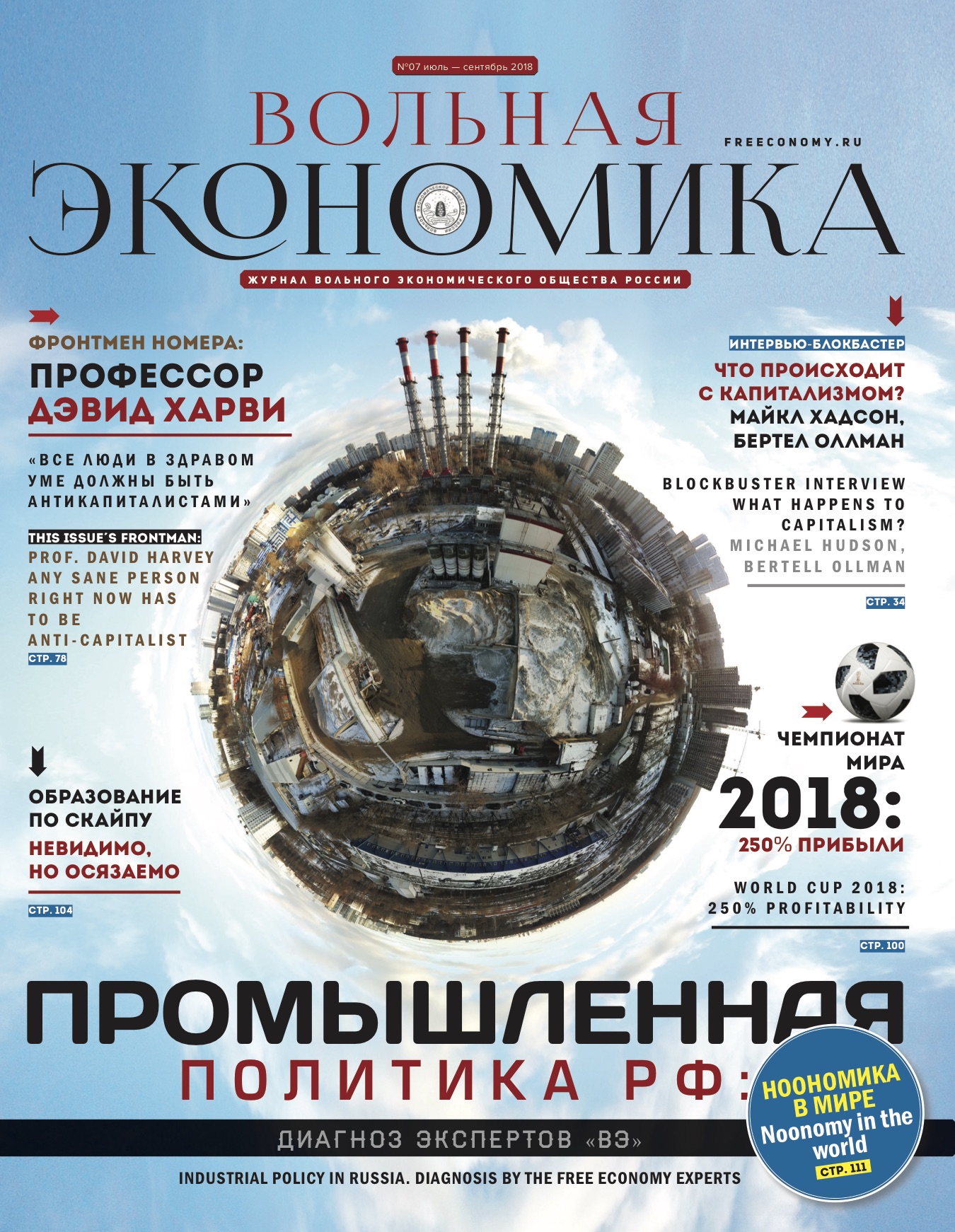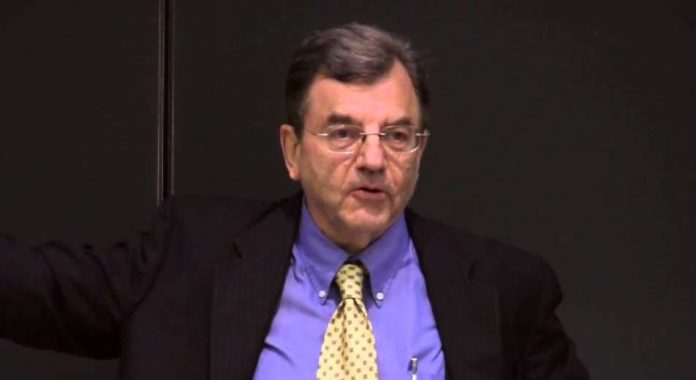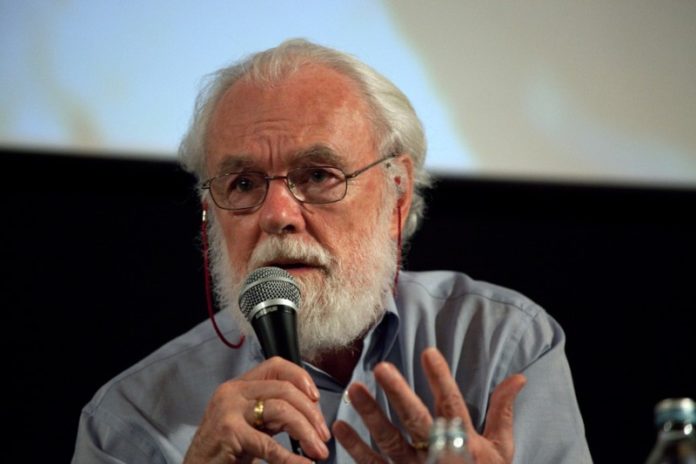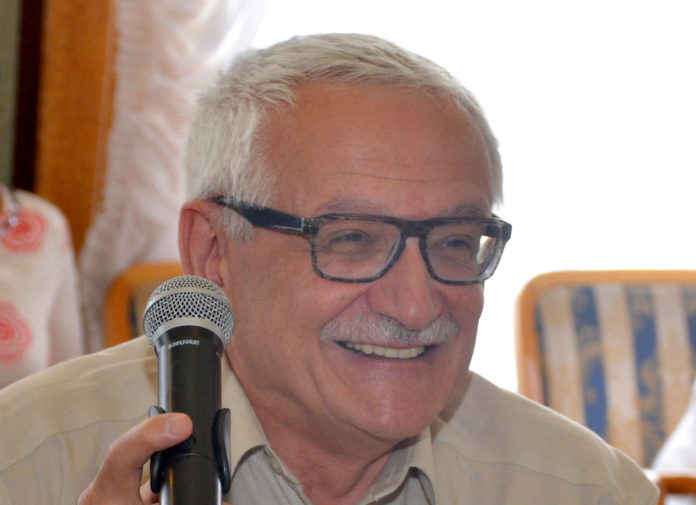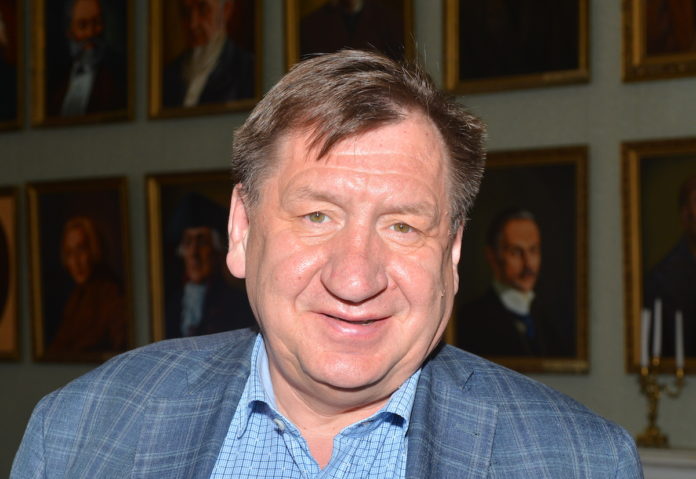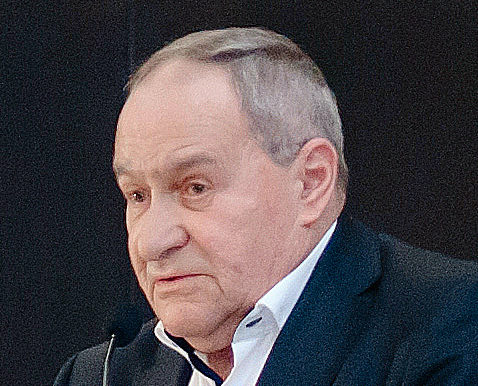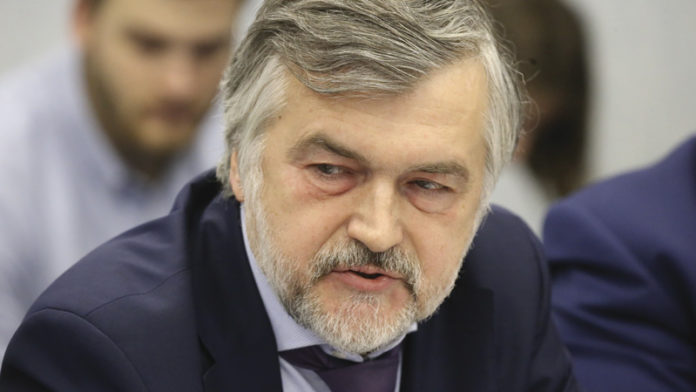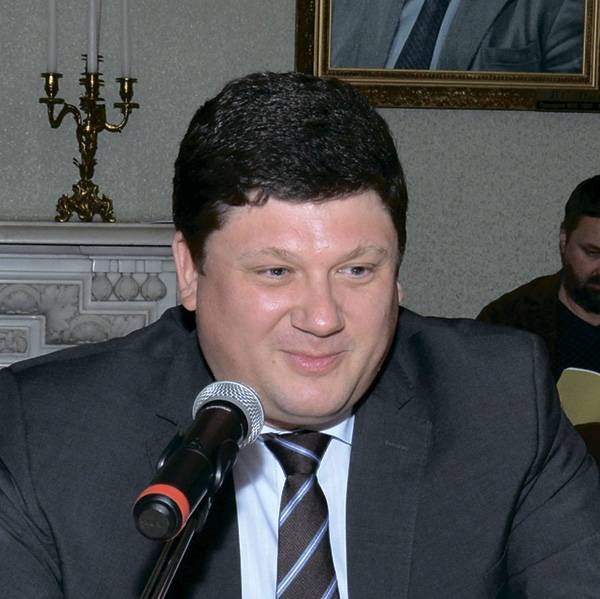Объявление о новых санкциях со стороны США вызвало панику на валютном рынке и привело к ослаблению рубля. Александр Широв, член Правления ВЭО России, заместитель директора, заведующий лабораторией Института народнохозяйственного прогнозирования РАН, рассказал каналу «Москва-24» о том, как отразятся санкции и скачки валют на жизни россиян. «Мы попали в ситуацию, когда у нас растут цены на мировых товарных рынках, например, на нефть, и ослабляется курс рубля. Это означает, что дорожают все товары, которые зависят от внешних цен, например, бензин. Чем слабее рубль, чем выше цены на нефть, тем выше цены на наших заправках. Мы попали в историю, когда курс непосредственно влияет на то, как мы живем, как растут цены нашей экономики», – отметил профессор.
Статистические итоги промышленного развития России
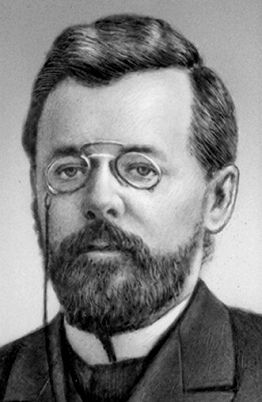
МИХАИЛ ИВАНОВИЧ ТУГАН-БАРАНОВСКИЙ (8.01.1865 — 21.01.1919)Русский экономист, историк, видный представитель «легального марксизма», после 1917 г. — министр финансов Украинской народной республики, член Императорского Вольного экономического общества. Степень магистра политэкономии и статистики получил в Московском университете. Работал в Департаменте торговли и мануфактур. Автор монографии «Промышленные кризисы в современной Англии, их причины и влияние на народную жизнь». С 1913 г. — профессор Петербургского политехнического института. Соавтор работы «Украинский народ в его прошлом и настоящем». По оценке австрийского и американского экономиста Йозефа Шумпетера, Туган-Барановский был самым выдающимся из «полумарксистских» критиков Маркса и наиболее выдающимся российским экономистом своего времени, соединявшим качества экономического историка и теоретика.
Туган-Барановский дал подробный и точный экономический диагноз российской экономике конца XIX века на заседании промышленного отделения ВЭО в январе 1898 г. Он применил в нем к России теорию циклических кризисов, доказывая свой тезис цифрами. «Вольная экономика» приводит фрагмент его доклада.
Нашу публику уже много лет уверяют, что русский капитализм совсем не похож на западноевропейский. На Западе капитализм повел к колоссальному росту национального богатства, огромному увеличению количества производимых продуктов. Капиталистическая промышленность Запада быстро прогрессирует и объединяет под фабричной кровлей все новые толпы рабочих. Крупные предприятия растут за счет мелких; происходит концентрация промышленности, особенно ярко обнаружившаяся в самое последнее время (синдикаты, тресты). В более передовых странах Запада земледелие уже давно перестало быть основной, господствующей отраслью производства, дающей тон всей промышленной жизни: своеобразный цикл капиталистической промышленности, смена периодов оживления и застоя, почти совершенно не зависит от колебаний урожая. Промышленный застой нередко наблюдается в урожайные годы, а оживление — в годы неурожая. Вместе с тем доля населения, занятого в промышленности и торговле, на Западе растет с каждым годом, а земледельческое население относительно, а иногда и абсолютно, падает.
Совсем другое, говорят нам, мы видим в России. Развитие капиталистического производства повело у нас не к обогащению, а к обеднению страны; не только рабочие классы, непосредственные производители, обеднели, но даже и общая сумма производимых продуктов обнаруживает тенденцию к сокращению. Число рабочих на наших фабриках почти не рас- тет, a сравнительно с общей суммой населения, даже падает. Земледелие теперь, как и раньше, является основанием всего нашего хозяйственного строя. Всем управляет у нас «господин урожай». Уродился хлеб — мужик больше покупает ситцевых рубах — хлопчатобумажная промышленность оживляется. Хлеба мало — на фабриках работа приостанавливается, фабричные рабочие остаются без работы. Периоды оживления и застоя нашей промышленности вполне совпадают с годами хорошего и дурного урожая. В самой фабричной промышленности не наблюдается той концентрации производства, которая замечается на Западе. В новейшее время размер нашей фабрики стал быстро сокращаться. Фабрика становится мельче. Наш капитализм был достаточно силен, чтобы окончательно разорить мужика, убить его промыслы, но оказался совершенно неспособным исполнить культурную миссию западноевропейского капитализма — объединить рабочих, поднять производительность национального труда. Русский капитализм походит на западноевропейский отрицательной стороной; но у него совершенно отсутствует положительная сторона, несомненно, имеющаяся в капиталистической промышленности Запада. Так или почти так изображаются русский и западноевропейский капитализм большинством наших почтенных экономистов.
Попробуем же проверить все это на цифрах; но, уж принявшись за статистику, не будем довольствоваться случайно выхваченными цифрами за тот или иной отдельный год, а статистически исследуем движение промышленности за весь новейший период развития нашего капитализма, то есть с эпохи освобождения крестьян…
Рост числа рабочих обнаруживает три ясно обозначенных колебания. Одна волна достигает своей вершины в 1873 г.; затем следует небольшое падение, в 1882 г. волна достигает апогея. В течение следующих трех лет число рабочих падает. Следующее поднятие начинается с 1886 г., причем голод 1891 г. вызывает только легкую приостановку поступательного движения; число рабочих быстро растет и особенно значительный рост замечается в последнем году, за который имеются сведения, — в 1893 г… Движение ярмарочной торговли в Нижнем до половины 80-х годов колеблется так же, как и число рабочих. Совпадение колебаний обеих кривых, полученных совершенно из разных источников, является доказательством того, что колебания эти выражают известную реальность. Как ни неточны цифры рабочих на фабриках и цифры подвоза товаров на нижегородскую ярмарку за каждый отдельный год, но, взятые за длинный ряд лет, они отражают действительные изменения промышленности. Начиная с половины 80-х годов кривая ярмарочной торговли быстро опускается книзу, в то время как кривая рабочих так же быстро растет. Что же это значит? А то, что значение нижегородской ярмарки в нашем торговом обороте падает. Архаическая форма торговли — ярмарки — сходит со сцены. Капиталистическая Россия усваивает и более культурные, более современные формы торговли. Нижегородская ярмарка перестает быть «всероссийским торжищем», игравшим такую первенствующую роль в торговом механизме прежней России. Обороты ярмарочной торговли достигают своего апогея в 1881 г. и уже, наверное, никогда не достигнут цифры этого года. Падение ярмарочной торговли за последнее десятилетие является одним из выдающихся симптомов быстрого экономического роста России. Ярмарка отмирает, вместе с отмиранием наших старинных бытовых экономических форм — кустарного производства, общины и пр.
Чем же вызывались эти колебания? Уже из одного того, что они соответствуют английским колебаниям, следует заключить, что причина их не имеет чисто местного характера. У нас обыкновенно думают, что единственным или, по крайней мере, наиболее важным фактором, определяющим состояние нашей промышленности, является «господин урожай»… Но промышленный застой середины 70-х годов совпадает скорее с хорошими, чем дурными урожаями; из четырех лет 1874–1877 гг. урожай 1874 г. был даже наилучшим за весь период. Конец 70-х годов и начало 80-го были, несомненно, эпохой оживления нашей промышленности. Было ли вызвано это оживление урожаями? Правда, урожай 1878 г. был очень хорош (хотя и не так, как в 1874 г.), но зато урожай 1879 г. был значительно ниже среднего. Время от 1882–1886 гг. было эпохой депрессии; между тем только один год (1883) этой эпохи был неурожайным, а в 1882, 1884 и 1885 гг. урожай был выше среднего, — и все- таки промышленность была в застое. Напротив, неурожайная эпоха начала 90-х годов едва была в силах немного приостановить рост общей цифры рабочих и хлопчатобумажного производства. Если мы обратимся к кривой выплавки чугуна, то тут мы не заметим уж ровно никакой связи между колебаниями урожая и состоянием производства».
Полностью доклад Михаила Ивановича Туган-Барановского вы можете найти на сайте ВЭО России — veorus.ru, где выложены все оцифрованные «Труды» начиная с 1765 года — от основания Императорского Вольного экономического общества.
«Капиталистический постмодерн характеризуется ростовщичеством и рабством»
Майкл Хадсон
Профессор экономики Университета Миссури, научный сотрудник Экономического института Леви при Бардколледже, бывший аналитик Уолл-стрит, политический консультант, комментатор, публицист
– По моему убеждению, сейчас мы живем в эпоху капиталистического постмодерна, а вовсе не модерна. Капиталистический же постмодерн на деле является возрождением феодального (Маркс называл его «античным») способа производства, характеризующегося ростовщичеством и рабством (которое приняло форму долговой кабалы). Так что мы живем в период перехода от одного способа производства к другому. Чтобы получить работу, студент должен оформить пожизненный кредит на обучение, 300 000 долл., вот здесь у нас в стоматологическом колледже Университета Нью-Йорка, а кроме этого долга, чтобы купить дом, он должен выплачивать 43 процента своего дохода (максимум, гарантированный государством) за обслуживание долга по ипотеке на покрытие всех жилищных издержек в штате Нью-Йорк. Да и в Лондоне на содержание жилья уходит свыше 40% бюджета наемного работника. Так что если к долгу за обучение (который может составлять 10-15% от дохода) прибавить долг за жилье, автомобильный долг, в который нужно влезть для приобретения машины, чтобы добраться на работу (во многих местностях это необходимо), долг по кредитной карте, то получится долговое ярмо. Люди тратят всю жизнь, чтобы расплатиться с долгами, в которые они влезли. В отличие от античности, у них есть свобода перемещения, они не крепостные и не принадлежат какому-то хозяину. Однако все экономические излишки выкачиваются финансовым сектором, оставляя капиталисту все меньше и меньше промышленной прибыли, поскольку если наемные рабочие вынуждены столько тратить на обслуживание долгов и уплачивать монопольные цены на медицинское обслуживание и иные услуги, которые приватизированы, а не предоставляются бесплатно, то рынок товаров и услуг, производимых капиталистами будет постоянно сжиматься. Поэтому, когда в Нью-Йорке идешь по Восьмой улице, то видишь, что у половины магазинов опущены шторы. Они закрыты. Они уходят из бизнеса.
«Все находящиеся в здравом уме люди должны быть антикапиталистами»
Дэвид Харви,
Член Британской академии, профессор антропологии и географии аспирантуры (graduate center) Городского университета Нью-Йорка
– Нам необходимо антикапиталистическое движение для ответа на вопрос, как выбраться из нынешнего болота, из ситуации, когда богатые богатеют, а бедные – беднеют. Замечу, что со времен кризиса 2007-2008 гг. 1% богатейших людей увеличил свое богатство примерно на 14-15%, а все остальные либо потеряли деньги, либо остались с чем были. И это – классический результат процесса, описанного Марксом в первом томе «Капитала». Разумеется, Маркс описывал и другие процессы в третьем томе «Капитала» – финансовые спекуляции и то, как капиталистам стало гораздо легче зарабатывать деньги на таких спекуляциях, чем связываться с реальным производством. Именно это мы зачастую и наблюдаем на протяжении последних 30-40 лет. Так что третий том «Капитала» во многом помогает мне понять, как и почему финансовые спекуляции оттесняют капитал.
Маркс ведь изобрел прекрасную категорию – «фиктивный капитал». Капитал порождает фиктивный капитал, капиталист богатеет, просто вводя в обращение этот фиктивный капитал, ровным счетом ничего не делая и не создавая. Вот что происходит, если спустить с поводка эту во многих отношениях безумную капиталистическую систему. Все признаки безумия налицо: мой любимый пример – Нью Йорк. Мы имеем кризис доступного жилья. И мы строим огромное количество жилья для сверхбогатых. Ведь сверхбогатым хочется там жить. Российские олигархи, саудовские шейхи – все хотят иметь пентхаусы на Парк Авеню, чтобы раз в году приезжать туда пожить на недельку-другую. Получается, что мы строим города не для жителей, а для инвесторов. У нас 60 000 бездомных в Нью-Йорке. Треть детей Нью-Йорка практически бездомные. На улицах их не видно, они ночуют на кушетках у друзей или знакомых. Безумно и преступно тратить все богатство на строительство домов для сверхбогатых. То есть капитализм не только аморален, но и безумен. Вот и еще одна причина, по которой я как находящийся в здравом уме человек, да и все другие находящиеся в здравом уме люди, должны быть антикапиталистами.
«Россия догонит Турцию при нынешних темпах дорожного строительства через 100 лет»
Михаил Блинкин
Директор Института экономики, транспорта и транспортной политики Национально-исследовательского университета «Высшая школа экономики»
– В отчёте Всемирного экономического форума о состоянии инфраструктуры Россия находится примерно на уровне своего национального богатства – насколько мы богаты, такая у нас инфраструктура. Конечно, мы ниже среднемировой линии, но не катастрофически. А вот в части автомобильных дорог мы находимся на три лаптя ниже мировой линии. Попросту говоря, этих дорог в макроисчислении просто нет. По коэффициенту Энгеля (коэффициент Энгеля – плотность дорожной сети, скорректированный на плотность населения) мы отстаём не то, что от развитых стран, но и от Польши, от Турции. Европейская часть России догонит Турцию при нынешних темпах дорожного строительства через 100 лет.
Дорог высших технических категорий, по-русски это называется – автомобильные магистрали и скоростные автомобильные дороги, по-английски – highway и expressway – в Китае не было вовсе до знаменитого выступления Дэн Сяопина в начале 1990-х о том, что надо связать страну. Сейчас они в полтора раза опережают Америку. У нас маленькими кусочками собирается 5000 таких дорог, это в основном вокруг Москвы, Питера, Сочи, то есть, это тоже близко к нулю. Как мы строим? По данным Росстата, всяких дорог, в том числе второстепенных, частных, корпоративных, городских улиц и так далее мы вводим в год 1700 километров. Для сравнения: у китайцев только по дорогам высшей технической категории был рекорд – 11 000 в год в 2016 году.
Теперь про железную дорогу. Мир строит высокоскоростные магистрали. В Китае их сейчас – 22 000 км, к концу 2019 года будет – 38 000, в тесненькой Европе – почти 15 000. У нас – 0, поскольку наш Сапсан в эту категорию не попадает.
А теперь очень важная штука. В сегменте мобильной связи (в отличие от дорог, где мы находимся во второй сотне) мы находимся в первой десятке, причём стабильно находимся. Вы знаете, почему? Потому что в мобильной связи мы не только покупаем гаджеты, но и платим за трафик. А вот разговоры о халявных дорогах, каких-то инфраструктурных пакетах, дорожных фондах можно продолжать ещё 20 лет.
«Российский путь должен пройти от Владивостока до Роттердама»
Иван Стариков
Ведущий научный сотрудник Института экономики РАН, действительный государственный советник РФ
– Транссиб, который сначала назывался «Великий сибирский рельсовый путь» – это самый успешный инфраструктурный проект в мировой истории из реализованных на суше, даже не в российской – мировой. Если бы Александр III не принял этого решения, то мы, безусловно, потеряли бы наши восточные сибирские территории. Я назову только одну цифру: в среднем после того, как Транссиб был достроен до восточной Сибири, за Урал в год переселялось в среднем полмиллиона человек – малоземельных крестьян из европейской части нашей страны. 2 года почти уже действует так называемый закон о Дальневосточном гектаре. Подали заявки 130 000 человек, но только треть – из Европы, остальные – дальневосточники.
За 30 последних лет, пусть не совсем совершенно, слегка деформировано, но рыночную экономику нам удалось построить. И теперь есть тотальное несоответствие в размещении производительных сил, которое образовалось уже под воздействием других законов – законов рыночной экономики, отсюда все проблемы.
Средняя скорость движения грузов в системе Российских железных дорог – 12 километров в час, ну максимум 20 вы сделаете из-за кривизны пути. Всё проектировалось под паровозную тягу. Нужны совершенно другие скорости. Поэтому сколько бы мы ни откладывали, нам необходима новая магистраль. Логика международной торговли требует выхода к портам в Северной Атлантике, в первую очередь к Роттердаму, поэтому российский путь должен пройти от Владивостока, а точнее от Посьета до Роттердама. В этом смысле он должен сбалансировать Китайский шёлковый путь, который предлагает обойти Восточную Сибирь, Дальний Восток, а нырнуть из Казахстана, где он проходит, в районе Кургана на территорию России, дальше 3050 километров в сторону Бреста, потом на Берлин. Наш маршрут – 9255 километров. Он сшивает 23 субъекта Российской Федерации.
Почему это важно в геополитическом плане? Созданное Транс-тихоокеанское партнёрство, куда вошло уже 13 стран сегодня, от Канады с Австралией до Сингапура, Кореи, Японии и так далее, не включает Китай, и большинство стран, входящих в ТРР – это исторические противники, оппоненты Китая, поэтому им нужен маршрут, альтернативный и шёлковому пути и Суэцкому каналу. И кроме российского маршрута другой альтернативы здесь нет.
Российская часть пути – 9255 километров – 18 триллионов рублей в ценах 2017 года, то есть, около 300 миллиардов долларов. Давайте мы с вами посмотрим на 3 вероятных источника финансирования. Первое: 23 субъекта Российской Федерации, которые можно заинтересовать в выпуске субфедеральных облигаций. Второй источник: на 1 июня вклады физических лиц в российских банках составляют 27 триллионов рублей, 14 триллионов – юридических лиц. Сегодня банк Сбербанк даёт 5 с половиной, максимум – 6% годовых. Давайте выпустим облигации с периодом 20 лет с гарантированной доходностью в 10%, разрешим включать эти облигации в имущественный комплекс физического лица с тем, чтобы можно было заложить в банк, продать, передать по наследству.
И наконец последнее – репатриация капитала российского происхождения оттуда, где ему сегодня неуютно. Поскольку срок строительства занимает 8 лет, а окупаемость этой магистрали – 22 года, все расчёты у нас сделаны и готовы, то мы с вами абсолютно однозначно можем сказать, что у нас есть такие деньги, даже без создания международного консорциума.
«У нас валютных резервов – ровно в 2,5 раза больше, чем вообще нужно»
Виктор Ивантер
Научный руководитель Института народнохозяйственного прогнозирования РАН, академик РАН, действительный член Сената ВЭО России
– У нас валютных резервов – ровно в 2,5 раза больше, чем вообще нужно. Долгов у нас практически нет, государственного долга нет, банк замечательно снизил инфляцию до беспредела, и вдруг оттого, что кому-то не нравится Дерипаска, упал рубль. Я не за и не против Дерипаски, он симпатичный человек, но при чем тут Дерипаска? У него проблемы там возникли, но почему рубль упал до такого странного значения?
Мало того, что у нас валютный резерв, мы что еще делаем? Мы начали выпускать займы, и предоставили возможность покупать эти займы нерезидентам. Чтобы они покупали, мы им какие-то приличные проценты должны платить, так? Не меньше 7% платим. А потом что с этими деньгами делаем? Мы их храним у них под 2%! Значит, получается за 7% берем, за 2% храним. Это такой бизнес по-русски: украли ящик водки, водку продали, а деньги пропили. Мы зачем это сделали-то? Нам зачем эти деньги? Но ведь именно с помощью этих денег мы взяли и установили курс 55 рублей за доллар, после чего отдали рынок спекулянтам. Мы же им его действительно отдали, при этом мы повторили ровно то, что мы совершили в 1998 году с ГКО. Зачем мы это сделали? В результате что произошло – население более всего пострадало, так как оно у нас потребитель импорта, и для него цены возросли. Мне кажется, не надо таких грубых ошибок делать. Если у вас есть деньги, вы не берите в долг.
Второе обстоятельство: а зачем нам такие валютные резервы? Есть такой парадокс. Деньги нужны в двух случаях: чтобы купить и чтобы продать. Купить – понятно, продать – понятно. А если мы ставим задачу резко увеличить несырьевой экспорт, то мы должны прокредитовать покупателя, у нас есть возможности для этого. Я боюсь, что произойдет? Произойдет следующее: мы скажем – да, мы все это сделаем и выделим на это аж пять миллиардов рублей! Все будут смеяться, цирк будет! Может произойти такой цирк? Может, к сожалению. Не нужно его устраивать…
«Главное – это огромное падение доходов населения и резкий рост неравенства»
Андрей Клепач
Заместитель председателя (главный экономист) Внешэкономбанка, заведующий кафедрой макроэкономической политики и стратегического управления экономического факультета МГУ имени М.В. Ломоносова, заслуженный экономист РФ
– Может быть, самое главное это даже не то, будет ли у нас 5-6 процентов роста. Главное – это огромное падение доходов населения и резкий рост неравенства. Выигрыш от роста получает только 10% населения. У нас, возможно, даже не 10, а 2%. Надо отдать должное руководству страны: если брать экономическую политику после 2012 года, в связи с указами президента большие ресурсы были инвестированы в то, чтобы не только поднять зарплату учителям, врачам, ученым, но, по сути дела, существенно раздвинуть границы среднего класса. Можно по-разному оценивать пределы среднего класса, поэтому спектр оценок по России различный – от двенадцати до двадцати с лишним процентов. Тем не менее, это позволило существенно расширить границы среднего класса и создать прирост богатства для среднего класса. То есть, это не только 2%, а уже порядка 10-15% населения.
Тем не менее, то, что мы получили в последние годы, – это резкое падение доходов населения, что в реальном выражении составляет 13%. Существуют большие социальные дисбалансы и несбалансированные каналы того, как рост и доходы экономики превращаются в доходы людей. Без решения этой задачи мы не только не получим высоких темпов экономического роста, но мы не получим другого качества общества. Кто выиграет от экономического роста, и на кого в этом случае будет опираться Россия? Это первая проблема, которая не решена. Если брать Послание президента, там акцент поставлен на сокращение бедности. Проблема у нас не только в том, что бедность возросла, а в тех, кто относится к так называемым малообеспеченным слоям населения, наиболее уязвимым, которые составляют больше трети населения. Переход в зону бедности из этих слоев происходит очень быстро в случае рождения нескольких детей, или если один из работающих потерял работу. Итак, вопрос в том, какая модель экономического роста, во-первых, позволит сократить масштабы этого малообеспеченного слоя населения, а во-вторых, придаст новые качества развитию человеческого капитала. По сути дела, сейчас никаких идей нет, кроме того, чтобы просто поддерживать соотношение средней заработной платы по региону. Соответственно, врачи из Иваново, Владимира и т.д. ездят работать вахтовым методом в Москву и в Московскую область, а те, кто вынужден лечиться в Иваново и во Владимире, тоже периодически пытаются доехать в Москву – такая степень неравенства в качестве и стандартах здравоохранения между Москвой и регионами в результате этой политики стала просто огромной.
«Сейчас невозможно запустить экономический рост без опоры на внутренний спрос»
Александр Широв,
Заместитель директор Института народнохозяйственного прогнозирования, д.э.н.
– В послании президента мы слышали тезис об увеличении подушевого ВВП в полтора раза. Если его переводить на темпы роста ВВП, мы получим среднегодовые темпы в период до 2026 г. порядка 6%. Это сверхзадача для нашей экономики. В длительный период времени, видимо, такие темпы роста невозможны, но в период ускорения экономического роста в отдельные годы, я думаю, что это вполне достижимо. И достижимо с разных точек зрения.
Мы разложили эти возможные темпы роста по различным компонентам. Прежде всего, это отдельные проекты – это развитие инфраструктуры, это ввод жилья, это увеличение эффективности экспорта, это модернизация ключевых производств. Например, развитие инфраструктуры в ближайшие 6-7 лет способно увеличить темпы экономического роста примерно на один процентный пункт. То есть, при текущей базе в 1,5 – 2%, мы уже имеем 3% роста. Увеличение вводов жилья до 120 млн. кв. м. в год – это еще 0,8 процентного пункта. Эффективность экспорта – еще 0,7. И таким образом искомые 5 процентов, даже чуть больше, набираются.
Если мы говорим о темпах роста в терминах элементов использования ВВП, то чуть больше половины среднегодовых темпов роста в 5% должен обеспечить вклад со стороны инвестиций в основной капитал. Вторым важным направлением является потребление населения (вклад в формирование среднегодовых темпов роста ВВП в 2018-2026 гг. 1,2 процентных пункта).
Можно еще раз подчеркнуть, что сейчас невозможно запустить экономический рост без опоры на внутренний спрос. Внутренний спрос сейчас искусственно сдерживается и находится ниже равновесных уровней. И те действия правительства, которые были в конце прошлого – начале этого года, связанные с повышением доходов населения, безусловно, на мой взгляд – это движение в правильном направлении, более того, это действия, которые в определенной степени восстанавливают социальную справедливость. Что касается чистого экспорта, то его вклад в экономическую динамику будет ограничен (менее одного процентного пункта). Еще менее значимым будет вклад со стороны государственного потребления.
Если мы посмотрим на региональное развитие, то, к сожалению, здесь у нас есть существенные проблемы, потому что, если мы будем развиваться так, как мы развиваемся сейчас, у нас не будет изменений в пространственном развитии, то нам не хватает двух примерно процентных пунктов роста. Эти два процентных пункта должны быть сформированы в таких регионах, как Сибирский федеральный округ, Дальневосточный федеральный округ, Уральский федеральный округ. Это развитие традиционных промышленных регионов, придание динамизма тем территориям, которые имеют высокий потенциал развития. И это возможно, это предполагает соответствующую региональную экономическую политику.
Одним из региональных приоритетов является развитие республики Крым. Совершенно понятно, что интеграция такого крупного региона в экономику России – это длительный процесс. Фактически, по сравнению, например, со Ставропольским краем, за последние 15 лет Крым суммарно получил вдвое меньше объем инвестиций. Это значит, что, соответственно, он имеет и более низкий стартовый уровень. Задача состоит в том, чтобы Крым не просто достиг среднероссийского уровня, он должен приблизиться по ключевым показателям качества жизни и экономического развития к передовым российским регионам, потому что по уровню обеспеченности инфраструктурой, по природным факторам он имеет для этого все возможности. И, соответственно, политика, направленная на опережающее развитие этого стратегически важного региона должна быть одним из элементов общей стратегии развития российской экономики.
Таким образом, все то, что нужно для того, чтобы выработать эффективную экономическую политику развития российской экономики, на мой взгляд, есть в текущем послании Президента. Проблема в том, как эти целевые ориентиры будут превращены в конкретные действия в области экономической политики. А здесь главное – риски реализации стратегии. Мы сейчас видим, что, к сожалению, часть тезисов заговаривается, интерпретируются в разрез с духом послания. В этом состоит существенная опасность. Потому что, если мы будем продолжать расти темпом в 1,5– 2%, то риски социальной политической напряженности в нашей стране резко возрастают.


